第29章 Letter XXII(1)
Accordingly,if the aesthetic disposition of the mind must be looked upon in one respect as nothing -that is,when we confine our view to separate and determined operations -it must be looked upon in another respect as a state of the highest reality,in as far as we attend to the absence of all limits and the sum of powers which are commonly active in it.Accordingly we cannot pronounce them,again,to be wrong who describe the aesthetic state to be the most productive in relation to knowledge and morality.
They are perfectly right,for a state of mind which comprises the whole of humanity in itself must of necessity include in itself also -necessarily and potentially -every separate expression of it.Again,a disposition of mind that removes all limitation from the totality of human nature must also remove it from every social expression of the same.Exactly because its "aesthetic disposition"does not exclusively shelter any separate function of humanity,it is favourable to all without distinction;nor does it favour any particular functions,precisely because it is the foundation of the possibility of all.All other exercises give to the mind some special aptitude,but for that very reason give it some definite limits;only the aesthetical leads him to the unlimited.Every other condition,in which we can live,refers us to a previous condition,and requires for its solution a following condition;only the aesthetic is a complete whole in itself,for it unites in itself all conditions of its source and of its duration.Here alone we feel ourselves swept out of time,and our humanity expresses itself with purity and integrity as if it had not yet received any impression or interruption from the operation of external powers.
That which flatters our senses in immediate sensation opens our weak and volatile spirit to every impression,but makes us in the same degree less apt for exertion.That which stretches our thinking power and invites to abstract conceptions strengthens our mind for every kind of resistance,but hardens it also in the same proportion,and deprives us of susceptibility in the same ratio that it helps us to greater mental activity.For this very reason,one as well as the other brings us at length to exhaustion,because matter cannot long do without the shaping,constructive force,and the force cannot do without the constructible material.But on the other hand,if we have resigned ourselves to the enjoyment of genuine beauty,we are at such a moment of our passive and active powers in the same degree master,and we shall turn with ease from grave to gay,from rest to movement,from submission to resistance,to abstract thinking and intuition.
This high indifference and freedom of mind,united with power and elasticity,is the disposition in which a true work of art ought to dismiss us,and there is no better test of true aesthetic excellence.If after an enjoyment of this kind we find ourselves specially impelled to a particular mode of feeling or action,and unfit for other modes,this serves as an infallible proof that we have not experienced any pure aesthetic effect,whether this is owing to the object,to our own mode of feeling -as generally happens -or to both together.
As in reality no purely aesthetical effect can be met with -for man can never leave his dependance on material forces -the excellence of a work of art can only consist in its greater approximation to its ideal of aesthetic purity,and however high we may raise the freedom of this effect,we shall always leave it with a particular disposition and a particular bias.Any class of productions or separate work in the world of art is noble and excellent in proportion to the universality of the disposition and the unlimited character of the bias thereby presented to our mind.